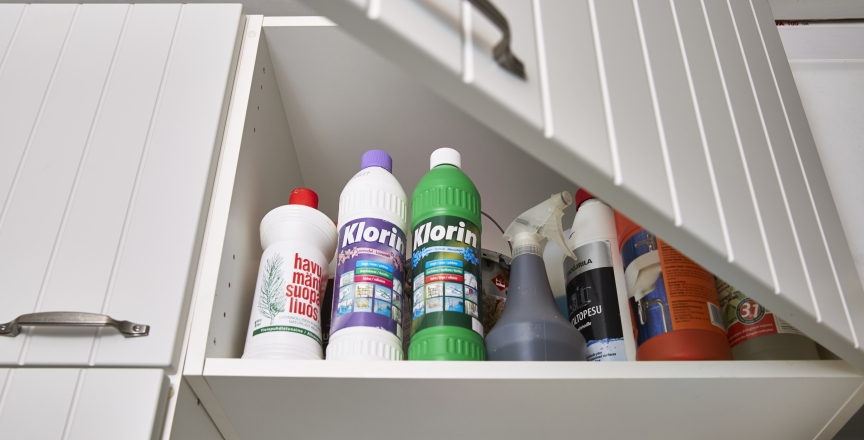Using alcohol increases the risk of all accidents
The effects of alcohol on functional capacity depend on the amount of alcohol consumed, the person’s health, gender, body weight and, for example, potential medication. Remember that the intensity of the effects of alcohol is individual. Young people, middle-aged people and men have the most accidents under the influence. These groups use alcohol the most.
Alcohol affects the central nervous system, slowing down reaction time and hindering the ability to concentrate. It also negatively affects motor skills, such as balance, coordination and accuracy. The risk of various accidents increases as your reaction time slows down, concentration slips and balance deteriorates.
If you are concerned about the substance abuse of a loved one, bring the matter up in a safe space and in a neutral manner. You can start the discussion by talking about your own observations, for instance.
Because alcohol is a central nervous system depressant, it causes fatigue and impairs performance. Alcohol starts hindering performance immediately after consumption. Your performance will still be poor the next day and even later, if you have consumed large amounts.
Alcohol hinders the functioning of the senses when under the influence, which can be observed, for example, as an impaired sense of touch and vision. Alcohol also weakens the ability to regulate emotions and increases impulsiveness. At the same time, alcohol affects the ability to make decisions. Alcohol makes the normal functioning of the brain more difficult and heavily impacts cognitive functions, such as the ability to process information, observe, think and remember. Alcohol makes learning new things more difficult and affects both short-term and long-term memory.
Excessive alcohol consumption has many immediate effects. The faster you drink, the faster the volume of alcohol in your brain increases and the more impaired your brain’s functions are. The risk of accidents also increases rapidly.
Alcohol affects young people more than adults, as young people’s blood alcohol levels may rise high in an instant, which at worst may lead to a poisoning.
Intoxicant-induced poisoning may be caused by a single substance or be a result of the mixed use of many substances, such as medication and alcohol or drugs. Severe intoxicant-induced poisoning often results in respiratory depression, cardiac arrhythmia, cardiac arrest and psychosis.
Alcohol consumption is a significant factor behind burns, fire-related deaths and fires. Approximately 70 per cent of the victims of fire-related death were under the influence of alcohol or other intoxicants at the time of the incident. You should not smoke on the couch or in the bed due to the fire hazard. You can only leave a burning cigarette in an ashtray or on another non-combustible surface if you monitor it at all times.
Intoxicants, and especially alcohol, also play an important role in accidents related to road traffic and water traffic as well as falling and drowning accidents. It has been found that almost two out of three drowned people had 0.5‰ or more alcohol in their blood.
More than 16,000 drunk driving cases were reported to the police in 2022. In 2022, 38 people died and 395 were injured in connection with drunk-driving cases.
The elderly and alcohol
As the body ages, its functioning and composition change, which also lowers alcohol tolerance. Different diseases and medications may also increase the negative effects of alcohol and increase the risk of falling and accidents.
Alcohol consumption among the elderly has increased and become more commonplace as the baby boom generation has aged. There are many reasons for using intoxicants, such as loneliness, alleviating depression or passing time. Especially the elderly might also explain their use of intoxicants as self-medication, like treating cardiovascular diseases, sleep disorders or stomach problems.
The limit of risk consumption for the elderly is considerably lower than for working-age adults, as the risks of alcohol consumption are already realised after consuming smaller amounts. The elderly do not need to consume a large amount of alcohol to also increase their susceptibility to accidents. For these reasons, you should consider reducing your alcohol consumption as you age.
Accidents caused by intoxicants can be prevented and reduced
- Reducing your total alcohol consumption and especially binge drinking.
- Raising awareness of the risks of the mixed use of medication and intoxicants.
- Abstaining from using intoxicants when moving by and in water.
- Situational sobriety: intoxicants have no place in traffic, for example.
- Actively bringing up the use of intoxicants and identifying risk use.
- Low-threshold substance abuse services and referral to treatment.
Read more
-

Poisonings
In home settings, poisoning is most commonly caused by medications, substances, toxic plants, chemicals, or mushrooms. In Finland, carbon monoxide poisoning is also a concern.
-

Safety Checklists
Home, cabin, and child safety can be improved with small changes. Using safety checklists, you can assess how safe your environment is. You can also share the results of the tests on social media.
Related links
Can you use the information on this page?
Give Feedback
With this form you can give us feedback.

